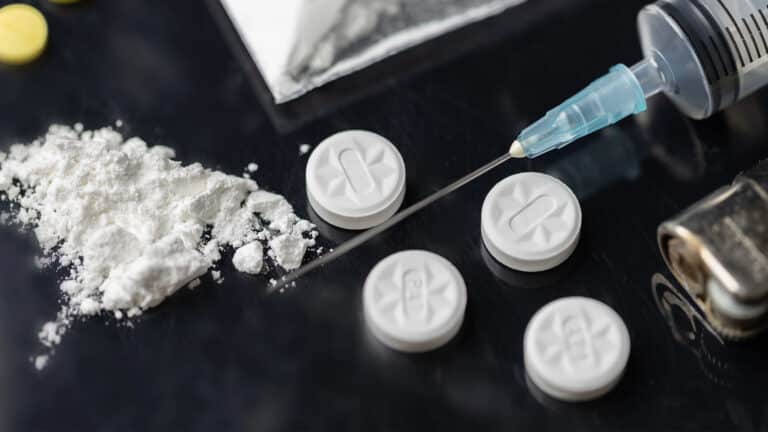Understand addiction complexity
Addiction emerges from a confluence of biological, psychological, and social factors that demand a nuanced approach to treatment. In 2022, nearly 108,000 individuals in the United States succumbed to drug-involved overdoses, averaging almost 296 fatalities per day [1]. Furthermore, the SAMHSA National Helpline received 833,598 calls in 2020—a 27 percent rise from the prior year—underscoring the escalating demand for expert support [2]. Despite the high stakes, over 95 percent of individuals who needed drug rehab in 2023 did not participate in a formal program [1]. Consequently, any recovery pathway must integrate medical stabilization, therapeutic interventions, and ongoing support.
Impact of chronic relapse rates
Relapse is an anticipated element of the recovery journey rather than a failure. Relapse rates for substance use range from 40 to 60 percent, mirroring those of chronic diseases such as hypertension and diabetes [1]. National surveys reveal that only about one-third of individuals with alcohol use disorder attempt to quit, and merely one-quarter sustain reduced consumption for over a year [1]. Nevertheless, when you engage in structured care that anticipates setbacks and reinforces coping strategies, you significantly improve your ability to maintain sobriety over time.
Influence of co-occurring conditions
Co-occurring mental health disorders appear in more than half of those seeking treatment for addiction. Conditions such as depression, generalized anxiety, or trauma-related disorders may drive you toward substances as a form of self-medication. In addition, untreated psychiatric symptoms can compromise engagement in therapy. Based on our analysis, dual diagnosis treatment that addresses both mental health and substance use concurrently provides the most effective route to lasting recovery.
Explore levels of care
Recovery is not a single event but a series of progressive stages that match your evolving needs. We recommend a graduated continuum of care comprising medical detoxification, residential treatment, and outpatient services. This framework ensures that you receive the right intensity of intervention at every point.
Medical detoxification services
Your first step often involves safely managing withdrawal symptoms under clinical supervision. Our medical detoxification services include a comprehensive drug detox program tailored to the substance you are using. Core offerings include:
- Alcohol detox: alcohol detox program
- Opioid detox: opioid detox center, fentanyl detox treatment, heroin detox program
- Stimulant detox: cocaine detox center, meth detox program, adderall detox program, ecstasy detox treatment
- Cannabis detox: marijuana detox center
In addition to 24/7 medical monitoring, our detox services include individualized medication management and supportive therapies designed to minimize discomfort and reduce risk.
Residential treatment programs
After detoxification, you transition into a structured residential setting where you live on campus and engage in daily therapeutic activities. We offer both residential alcohol rehab and residential drug rehab options, typically lasting 30, 60, or 90 days. During your stay, you benefit from:
- Intensive individual and group therapy
- Onsite medical and psychiatric care
- Life skills training and relapse prevention education
- Recreational and holistic therapy sessions
Furthermore, if you present with co-occurring mental health disorders, our dual diagnosis residential treatment program integrates psychiatric assessments, medication management, and specialized psychotherapy to address all facets of your recovery.
Outpatient support options
When you and your clinical team determine that you are ready to reintegrate into daily life, outpatient programming provides ongoing care without requiring residential stays. We offer multiple levels:
- Partial hospitalization: partial hospitalization program for addiction
- Intensive outpatient: intensive outpatient program for addiction
- Standard outpatient: outpatient alcohol rehab, outpatient drug rehab
In addition, our outpatient dual diagnosis treatment and specialized suboxone outpatient clinic integrate counseling, medication-assisted treatment, and peer support to maintain momentum in your recovery journey.
Review evidence-based therapies
Addiction treatment is grounded in rigorous clinical research. A recent comparison found similar response rates across addiction and chronic medical disorders, affirming that structured recovery engenders lasting change [3]. While levels of care describe where you receive treatment, the core of any effective plan lies in validated therapeutic interventions.
Individual and group therapy
Personalized psychotherapy addresses the root causes of substance use, fosters coping skills, and enhances motivation. We provide:
- Cognitive-behavioral therapy (CBT) to reshape patterns of thinking and behavior
- Dialectical behavior therapy (DBT) to manage intense emotions and reduce self-destructive behaviors
- Motivational interviewing to strengthen commitment to change
These modalities are delivered in both one-on-one sessions [4] and peer-supported group formats [5], ensuring a balanced approach to personal insight and community learning.
Dual diagnosis treatment
When addiction coexists with mental health disorders, integrated therapy is non-negotiable. Our dual diagnosis protocols [6] align psychiatric care with substance use counseling. Based on our experience, this coordinated strategy reduces the risk of relapse and supports comprehensive wellness.
Medication-assisted treatment
Medication-assisted treatment (MAT) combines pharmacology with psychotherapy to address the biological and behavioral components of addiction. We facilitate access to FDA-approved medications such as buprenorphine or naltrexone through our medication assisted treatment program and suboxone treatment program. Studies indicate that MAT significantly lowers illicit drug use and improves retention rates [7].
Embrace holistic interventions
Addiction affects every aspect of your being—physical, emotional, and spiritual. Consequently, a truly comprehensive program incorporates complementary practices that nurture the whole person.
Complementary and alternative therapies
By integrating evidence-supported adjunct therapies, we enhance resilience and encourage mindfulness. Our offerings include:
- Yoga and meditation for stress reduction
- Art and music therapy to foster self-expression
- Nutritional counseling to restore physical health
- Mindfulness-based relapse prevention techniques
Family involvement and therapy
Recovery extends beyond the individual. We recognize the importance of healing relationships and rebuilding trust. Our family therapy for addiction recovery sessions educate relatives, improve communication, and create a supportive home environment. This collaborative approach helps you and your loved ones forge a sustainable path forward.
Plan for aftercare support
Your treatment journey does not conclude when you leave the facility. In addition, long-term success hinges on a robust aftercare blueprint that safeguards against isolation and complacency.
Structured relapse prevention
Relapse prevention therapy [8] equips you with personalized strategies to identify and navigate triggers. We recommend staying engaged with a counselor or recovery coach for at least 12 months, adjusting your plan as your needs evolve. Your personalized aftercare plan will cover:
- Regular individual check-ins
- Ongoing group sessions
- Skills workshops for coping and stress management
- Data from long-term studies indicate that nearly 90 percent of individuals abstinent for two years remain substance-free at ten years [3]
Community-based recovery groups
Peer support is a cornerstone of sustained sobriety. While traditional mutual-help organizations like 12-Step fellowships offer free, informal meetings, you may also benefit from specialized support groups tailored to your experience. Furthermore, sober living homes can provide a structured, substance-free residence as you transition back into independent living. We guide you in making connections that bolster accountability and resilience.
Evaluate specialized programs
Every substance presents unique withdrawal challenges and therapeutic considerations. To help you compare options efficiently, the following table outlines our core tracks:
| Substance | Detox program | Rehab program |
|---|---|---|
| Alcohol | alcohol detox program | inpatient alcohol rehab |
| Opioids | opioid detox center | opioid rehab center |
| Fentanyl | fentanyl detox treatment | fentanyl rehab program |
| Heroin | heroin detox program | heroin rehab center |
| Cocaine | cocaine detox center | cocaine rehab program |
| Meth | meth detox program | meth rehab center |
| Marijuana | marijuana detox center | marijuana rehab program |
| Adderall | adderall detox program | adderall rehab treatment |
| Ecstasy | ecstasy detox treatment | ecstasy rehab center |
In addition, if you are navigating concurrent mental health needs, our dual diagnosis residential treatment and outpatient dual diagnosis treatment offer comprehensive care that addresses both areas seamlessly.
Choose The Hope House
Selecting the right provider can transform your recovery trajectory. At The Hope House, you will benefit from an integrated continuum of care, starting with medically supervised detox and extending through residential, outpatient, and aftercare services. Our expertise indicates that personalized treatment plans deliver the highest success rates.
We recommend The Hope House because:
- Integrated continuum of care that adapts to your progress
- Individualized plans informed by thorough assessments
- Multidisciplinary team of physicians, psychiatrists, therapists, and peer specialists
- Onsite primary care oversight for comorbid medical conditions
- Accredited and licensed facility adhering to rigorous safety standards
- Calm, supportive environment designed to foster healing
Take the next step
Your decision to pursue a comprehensive addiction recovery program can be life-changing. Contact our admissions team at The Hope House to schedule an initial assessment, tour our facility, or discuss your specific needs. We are committed to guiding you through each phase with professionalism and compassion. Reach out today to begin your journey toward a healthier, more resilient future.







